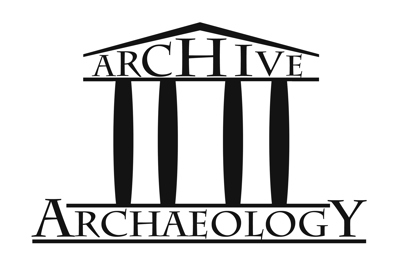
ISSN 2983-9289
Method of peer review
at least two single-blind reviews undertaken by a specialist member of the Board and/or external specialists
Keywords
Archaeology, history, archival sciences, excavation history, reception history, global history
Accepted Language(s):
German, English, French, Italian, Spanish
Accepts Contributions in Open Access
Archive Archaeology is a series dedicated to the publication of monographs and edited collections exploring archival material and legacy data relating to archaeological and historical investigations across the centuries. The objectives of this series are twofold. Firstly, materials and excavation reports can be found in museums and archives around the world, but often they remain largely unpublished, frequently inaccessible, and typically uncited in scholarship, despite often holding crucial information on sites as well as objects and collections. This series therefore aims to provide a publication venue for such material in a contextualized manner, making it available for the first time, in combination with new research and wider discussions around archival material and legacy data. Secondly, in the context of wider discussions about handling and disseminating such materials, the series looks to promote research that explores the methodological and theoretical discussions around such material. Through this combination of approaches, the series provides a unique forum for new research into archaeological and historical archival materials and legacy data.
-
EDITORIAL BOARD
General Editor
Rubina Raja, Aarhus Universitet
Editorial Board
Stefano Anastasio, Superintendence of Archaeology, Fine Arts and Landscape, Florence
Jennifer Baird, Birkbeck, University of London
Olympia Bobou, Aarhus Universitet
William Carruthers, University of Essex
Miriam Kühn, Museum of Islamic Art, Staatliche Museen zu Berlin
Christina Riggs, Durham University
Nathan Schlanger, École nationale des chartes
Andrew Shapland, Ashmolean Museum, Oxford
-
AUTHOR INFORMATION
Main Language: English
Additional Languages: French, German, Italian, Spanish
Single-blind undertaken by (a) specialist member(s) of the Board or (an) external specialist(s)All volumes in this series are evaluated by an Editorial Board, strictly on academic grounds, based on reports prepared by referees who have been commissioned by virtue of their specialism in the appropriate field. The Board ensures that the screening is done independently and without conflicts of interest. The definitive texts supplied by authors are also subject to review by the Board before being approved for publication.
Submissions should be sent to:
Professor Rubina Raja: rubina.raja@cas.au.dkA detailed stylesheet for ARC can be found at:
https://www.brepols.net/permalink/guidelines-arc